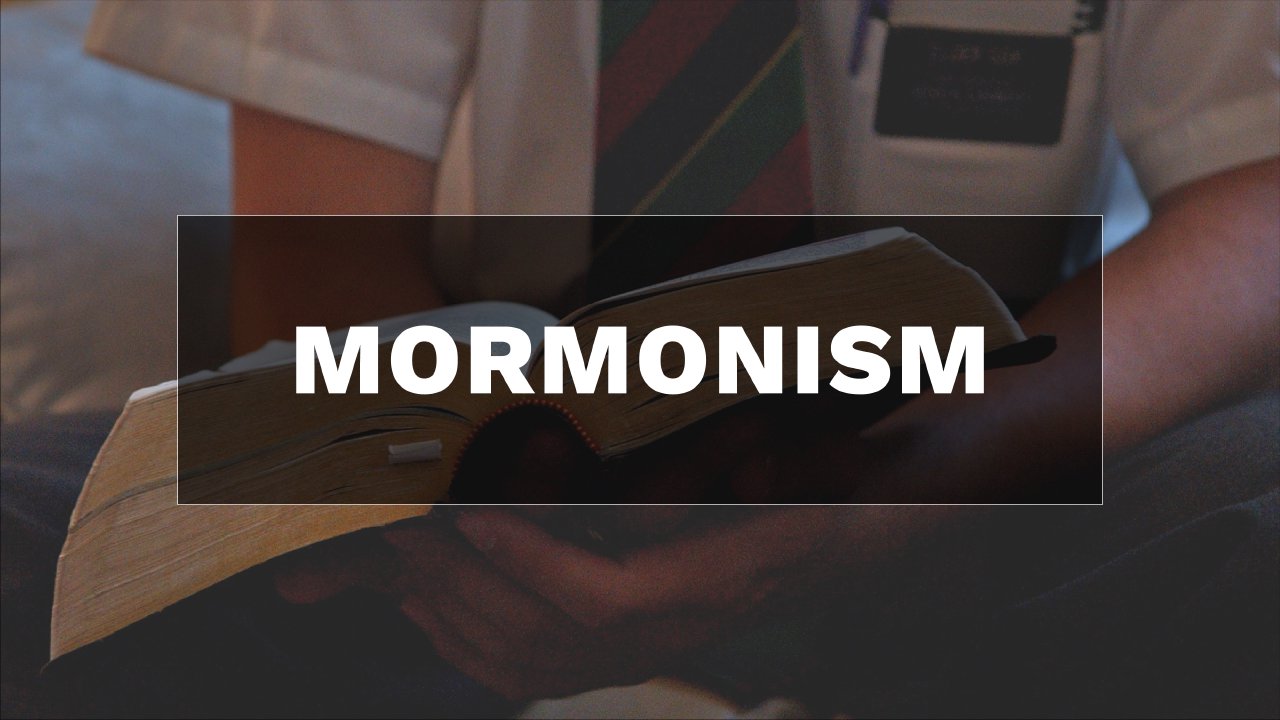WHAT DO MORMON’S MEAN BY THE GOSPEL?
Once again, to understand what Mormons mean by the gospel, we need to employ Columbo Question #1, “What do you mean by that?” What specifically do you mean by the words sin, atonement, forgiveness, faith, grace, salvation, and eternal life? Yes, Mormons and Christians use the same Gospel terminology, but they differ widely on definitions.
General salvation is not the ultimate goal for Mormons; eternal life is.
In Mormonism, eternal life means exaltation. Exaltation means godhood. The ultimate goal of every good Mormon is to achieve exaltation into the celestial kingdom—the highest level of heaven—become a god, and eventually rule your own world.
Ask your Mormon friend, “What is the ultimate goal of your religious efforts?” Godhood is the goal.
VERY BAD NEWS
The gospel is good news, but this good news implies some very bad news: Sin (Romans 3:19-20).
We’re made aware of our sin by God’s law, which demands moral perfection. Just a few verses later Paul declares, “all have sinned” and fallen short of God’s standard of perfection (v. 23). We’re all law-breakers and the just price to be paid for our sin is death (Romans 6:23).
Is the Mormon gospel the good news of rescue? No. Instead, it echoes the moral demands of the law. According to the LDS scriptures, individual salvation is only achieved through perfect obedience. But as we know, perfection is impossible. Therefore, the “good news” of Mormonism is an “Impossible Gospel.” Ironically, it turns out to be more bad news for Mormons.
Of course, Mormons deny perfection is required. In spite of this, most Mormons feel the pressure of perfection because they live under the unattainable demands of their gospel everyday. This gives Christians an effective tool—the Impossible Gospel—to share the good news of the true Gospel with their Mormon friends.
THE IMPOSSIBLE GOSPEL
The Impossible Gospel approach lets the Mormon scriptures speak for themselves. When it comes to the requirements of the Gospel, most Mormons think if you try your best, God takes care of the rest. They reason, “Nobody can achieve perfection.” The Impossible Gospel, however, shows them that according to their own scriptures, God does not grade on a curve. Instead, His law is a pass/fail test. You either get everything right or you don’t pass.
DISCUSS MORMON SCRIPTURE
We could use a number of Mormon scriptures to share the Impossible Gospel, but we’ll focus on six here. If possible, have your LDS friends read each passage to you out loud.
#1: Moroni 10:32 – “Yea, come unto Christ, and be perfected in him, and deny yourselves of all ungodliness, and if ye shall deny yourselves of all ungodliness, and love God with all your might, mind and strength, then is his grace sufficient for you....”
Point out the if/then phrase in this passage to your Mormon friend. According to this verse, when does God’s grace kick in? Only after you “deny yourselves of all ungodliness.” Next ask, “What would it look like if you denied yourself of all ungodliness?” It means they would have stopped sinning. Finally, let it hit close to home by asking, “Have you denied yourself of all ungodliness?” If he says no, remind him God’s grace cannot be applied until they do so.
#2: Moses 6:57 – “Wherefore teach it unto your children, that all men, everywhere, must repent, or they can in nowise inherit the kingdom of God, for no unclean thing can dwell there, or dwell in his presence...”
Mormons usually acknowledge their inability to be perfect, so they appeal to repentance in their scriptures. “If I repent, I should be okay.” Indeed, this verse indicates repentance is a prerequisite to enter the kingdom of God. But lead them into the next Mormon passage by asking, “What is repentance according to the LDS scriptures?”
#3: Doctrine & Covenants 58:42-43 – “Behold, he who has repented of his sins, the same is forgiven, and I, the Lord, remember them no more. By this ye may know if a man repenteth of his sins—behold, he will confess them and forsake them.”
According to this scripture, true repentance is confessing sin and forsaking it. So ask your Mormon friend what it means to forsake a sin. Doesn’t it mean you never return to it again? Yes. To forsake something is to abandon it. Mormon scripture reinforces the requirement of perfection.
#4: Doctrine & Covenants 82:7 – “...go your ways and sin no more; but unto that soul who sinneth shall the former sins return, saith the Lord your God.”
This passage is clear. If you continue to sin, your former sins are returned and counted against you. Forgiveness is foreign to this passage.
#5: Alma 34:33 – “...therefore I beseech of you that ye do not procrastinate the day of your repentance until the end; for after this day of life, which is given to prepare eternity, behold if we do not improve our time while in this life, then cometh the night of darkness wherein there can be no labor performed.”
This verse highlights the urgency of Mormon repentance. You cannot wait. This life is your only shot to accomplish true repentance, the forsaking of all sin.
#6: Doctrine & Covenants 25:15-16 – “Keep my commandments continually, and a crown of righteousness thou shalt receive. And except thou do this, where I am you cannot come. And verily, verily, I say unto you, that this is my voice unto all. Amen.”
Use this final passage to summarize the Mormon gospel. Ask your Mormon friend to clarify the meaning of “keep my commandments continually.” Follow up by asking if they’ve met this requirement. If they answer yes, ask if they’ve repented lately. Repentance means they’ve broken God’s commandments and therefore, have not kept his commands continually. If they answer no, ask when they’ll achieve continual obedience to God’s commands. Remind them they’ll never reach exaltation until they do so (“except thou do this...”). These questions are meant to open Mormon eyes to the requirement of perfection inherent in the LDS gospel and our inability to meet it.
The Mormon gospel requires something unattainable, perfection. But if it’s impossible for a Mormon to “deny himself of all ungodliness,” it’s impossible for him to be exalted in celestial glory. And that’s bad news for your LDS friends.
Unfortunately, the news gets worse. Not only are the requirements impossible to uphold, but the Mormon gospel also turns out to be a false gospel. Paul has grim words for those who would proclaim another gospel:
"I marvel that ye are so soon removed from him that called you into the grace of Christ unto another gospel: Which is not another; but there be some that trouble you, and would pervert the gospel of Christ. But though we, or an angel from heaven, preach any other gospel unto you than that which we have preached unto you, let him be accursed. As we said before, so say I now again, if any man preach any other gospel unto you than that ye have received, let him be accursed." (Galatians 1:6-9)
Preaching a false gospel is a grave offense and the consequences match it in severity. In love, we must warn our Mormon friends about the gravity of the situation.

Impossible Gospel of Mormonism
Brett Kunkle
More from
Mormonism



